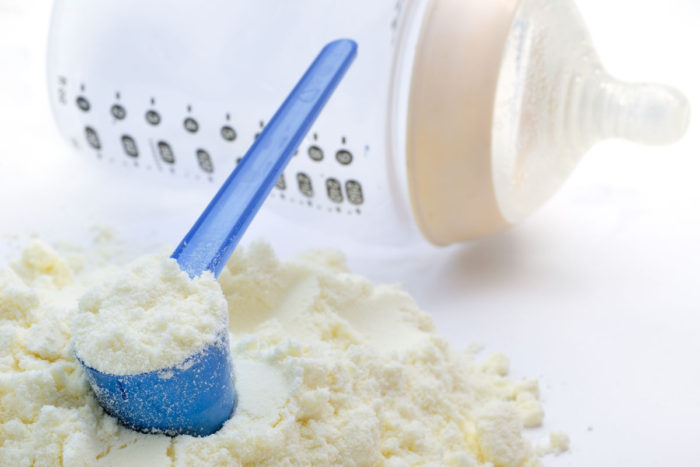Formula made with cow’s milk does not increase diabetes risk
Study examined children predisposed to the disease
 Getty Images
Getty ImagesA 15-year global study of children genetically predisposed to developing Type 1 diabetes found that drinking formula made with cow’s milk did not increase their risk for developing the disease.
A 15-year global study of children genetically predisposed to developing Type 1 diabetes found that drinking formula made with cow’s milk did not increase such children’s risk for developing the disease.
The findings provide a long-awaited answer to the question of whether infant formula made with cow’s milk plays a role in the development of Type 1 diabetes, according to an international team of researchers that includes scientists at Washington University School of Medicine in St. Louis.
The findings are published Jan. 2 in JAMA.
“Previous studies have indicated that early exposure to complex foreign proteins, such as the proteins in cow’s milk, may increase the risk of Type 1 diabetes in people with genetic risk for the disease,” said one of the study’s authors, Neil H. White, MD, a Washington University professor of pediatrics and of medicine. “The question was whether delaying the exposure to complex foreign proteins will decrease the risk of diabetes. The answer is no.”
In the U.S., about 200,000 youth under the age of 20 have Type 1 diabetes, an autoimmune disease caused when the pancreas stops producing the hormone insulin, which regulates the body’s blood-sugar levels.
Beginning in 2002, White and his research colleagues examined 2,159 infants in 15 countries. Each infant had a family member affected by Type 1 diabetes, as well as a genetic propensity for the disease that was determined with a blood test given at birth.
The babies were assigned randomly to one of two formulas designed for the study. A group of 1,078 infants received a conventional cow’s-milk-based formula with the cow’s-milk proteins intact, while a second group of 1,081 infants consumed a formula in which the cow’s-milk proteins were split into small pieces known as peptides. That formula — called hydrolyzed-casein formula — mimics the body’s process of digestion, breaking down proteins into tiny parts.
The children were followed for about 11 ½ years.
Each infant received his or her assigned formula for at least two months and until the age of 6 to 8 months. During that time, parents were asked to avoid allowing the baby to ingest cow’s-milk proteins from any other food sources.
Of the infants who consumed the conventional cow’s-milk formula, 82 (7.6 percent) eventually developed diabetes. For those who received the hydrolyzed-casein formula, 91 (8.4 percent) developed the disease.
“This study shows no statistically significant difference between the groups in terms of how many of these children developed diabetes; therefore, it helps provide a long-awaited, definitive answer to the controversy regarding the potential role of cow’s-milk formula in the development of Type 1 diabetes,” said White, who directs the Pediatric Clinical Research Unit at Washington University and treats patients at St. Louis Children’s Hospital. “It also indicates there is no evidence to revise the current dietary recommendations for infants at high risk for Type 1 diabetes.”






